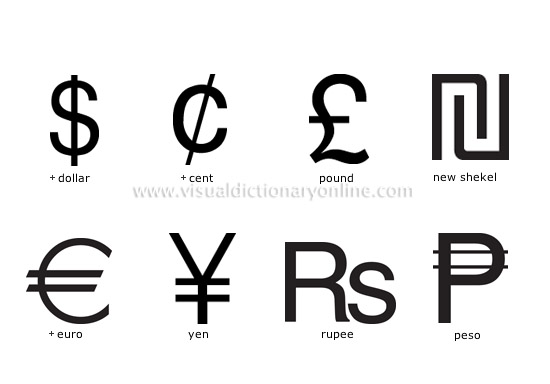examples of currency abbreviations
Currency abbreviation: abbreviation assigned to the currency of a country or group of countries; its reference value is guaranteed by a competent authority, usually a central bank.
peso 
The peso is the currency of Chile, Colombia, Cuba, the Dominican Republic, Mexico and Argentina; it is a descendant of the Spanish gold peso introduced in the 15th century.
rupee 
The rupee is the currency of India, Nepal, Pakistan, Sri Lanka and the Seychelles; it is a descendant of the silver rupee, which was first used in the 16th century.
new shekel 
The new shekel is the currency of Israel; it replaced the old shekel in 1985.
euro 
The euro is the common currency of the countries that belong to the European Union; it was introduced in January 2002.
yen 
The yen is the currency of Japan; the word means "round" or "circle" in Japanese.
pound 
The pound is used in the United Kingdom, Cyprus, Egypt and Lebanon, among other countries; it is the oldest currency in Europe.
cent 
A subdivision of certain currencies, including the dollar, the rupee and the shilling.
dollar 
Decimal monetary unit used in certain countries where English is spoken, including Canada, the U.S., Australia and New Zealand.








